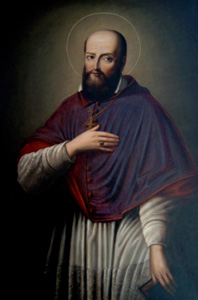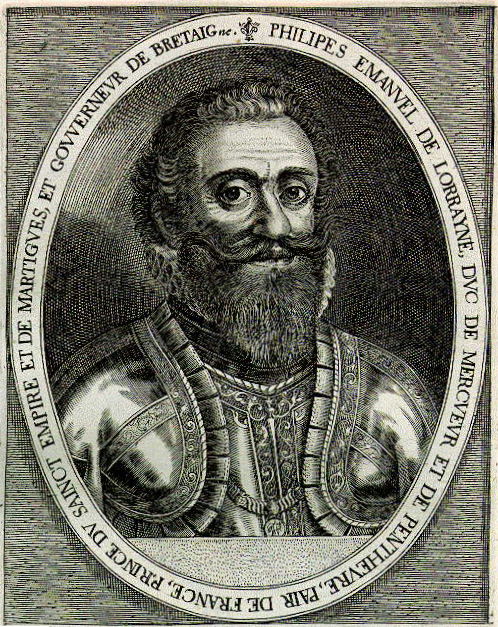Our Lineage Greatly Influences Our Actions
From the funeral oration for Philippe-Emanuel de Lorraine, Duke of Mercoeur and Penthièvre, delivered in the metropolitan church of Notre-Dame in Paris on April 27, 1602, by Saint Francis de Sales (1567-1622), Bishop-Prince of Geneva and Doctor of the Church:

“It is always God Who grants us salvation; He is its great architect, but He proceeds differently with His mercies, for He grants us certain favors unbeknownst to us, and others with the intervention of our desires, works, and will. Prince Philippe-Emmanuel, Duke of Mercoeur, received an abundance of favors of the first order, upon which he built an excellent edifice of perfection of those of the second order; for in the first order God had him born of two of the most illustrious, ancient, and Catholic houses among the princes of Europe [the Houses of Lorraine and of Savoy].
“It means a great deal to be the fruit of a good tree, metal of a good mine, river of a good source….
“[He] was born, I say, for military glory and the honor of the Church, this deceased prince, worthy scion of two such great stocks, from which he inherited the blood as well as the virtues; and just as two streams join to make a great and noble river, so these two houses of paternal and maternal ancestors of this prince, having joined their noble qualities in his soul, made him accomplished in all the gifts of nature, which is why he could well echo the divine sage in saying, ‘Puer autem eram ingeniosus, et sortitus sum animam bonam‘ [And I was a witty child and had received a good soul] (Wis. 8:19). It was good for his virtue to encounter so able an individual; it was a great boon for his ability to encounter a virtue such as this….

Philippe-Emanuel de Lorraine, Duke of Mercoeur and Penthièvre
“In such manner he was good enough to speak of his lineage, although to many it seems that nobility is a thing beyond our control, that only our actions are our own.
“And in truth lineage accounts for a great deal, and has a great power in our destinies, even in our very deeds, either through the passionate sympathies we often borrow from our predecessors or through the memory of their prowess that we preserve, or through the good and most curious nourishment we receive from them.”
Oeuvres completes de Saint François de Sales (Paris: Béthune Éditeur, 1836), Vol. 2, pp. 404-406 in Plinio Corrêa de Oliveira, Nobility and Analogous Traditional Elites in the Allocutions of Pius XII: A Theme Illuminating American Social History (York, Penn.: The American Society for the Defense of Tradition, Family, and Property, 1993), Documents IV, p. 476.

No comments:
Post a Comment